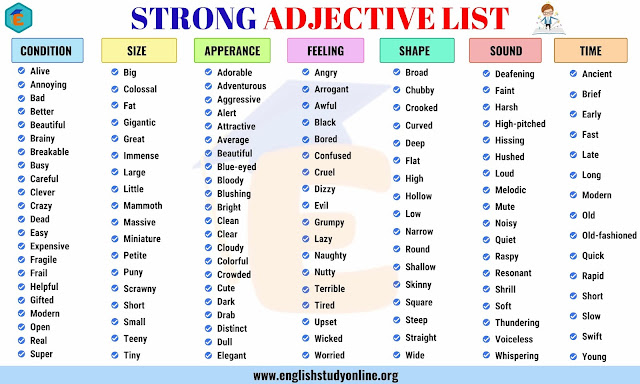PREPOSITIONS BY www.ego4u.com
Prepositions are short words (on, in, to) that usually stand in front of nouns (sometimes also in front of gerund verbs).
Even advanced learners of English find prepositions difficult, as a
1:1 translation is usually not possible. One preposition in your native
language might have several translations depending on the situation.
There are hardly any rules as to when to use which preposition. The only way to learn prepositions is looking them up in a dictionary, reading a lot in English (literature) and learning useful phrases off by heart (study tips).
The following table contains rules for some of the most frequently used prepositions in English:
Prepositions – Time
| English |
Usage |
Example |
|
|
|
|
|
|
- months / seasons
- time of day
- year
- after a certain period of time (when?)
|
- in August / in winter
- in the morning
- in 2006
- in an hour
|
|
|
- for night
- for weekend
- a certain point of time (when?)
|
- at night
- at the weekend
- at half past nine
|
|
|
- from a certain point of time (past till now)
|
|
|
|
- over a certain period of time (past till now)
|
|
|
|
- a certain time in the past
|
|
|
|
- earlier than a certain point of time
|
|
|
|
|
|
|
|
|
|
|
|
- marking the beginning and end of a period of time
|
- from Monday to/till Friday
|
|
|
- in the sense of how long something is going to last
|
- He is on holiday until Friday.
|
|
|
- in the sense of at the latest
- up to a certain time
|
- I will be back by 6 o’clock.
- By 11 o'clock, I had read five pages.
|
Prepositions – Place (Position and Direction)
| English |
Usage |
Example |
|
|
- room, building, street, town, country
- book, paper etc.
- car, taxi
- picture, world
|
- in the kitchen, in London
- in the book
- in the car, in a taxi
- in the picture, in the world
|
|
|
- meaning next to, by an object
- for table
- for events
- place where you are to do something typical (watch a film, study, work)
|
- at the door, at the station
- at the table
- at a concert, at the party
- at the cinema, at school, at work
|
|
|
- attached
- for a place with a river
- being on a surface
- for a certain side (left, right)
- for a floor in a house
- for public transport
- for television, radio
|
- the picture on the wall
- London lies on the Thames.
- on the table
- on the left
- on the first floor
- on the bus, on a plane
- on TV, on the radio
|
|
|
- left or right of somebody or something
|
- Jane is standing by / next to / beside the car.
|
|
|
- on the ground, lower than (or covered by) something else
|
- the bag is under the table
|
|
|
- lower than something else but above ground
|
- the fish are below the surface
|
|
|
- covered by something else
- meaning more than
- getting to the other side (also across)
- overcoming an obstacle
|
- put a jacket over your shirt
- over 16 years of age
- walk over the bridge
- climb over the wall
|
|
|
- higher than something else, but not directly over it
|
|
|
|
- getting to the other side (also over)
- getting to the other side
|
- walk across the bridge
- swim across the lake
|
|
|
- something with limits on top, bottom and the sides
|
|
|
|
- movement to person or building
- movement to a place or country
- for bed
|
- go to the cinema
- go to London / Ireland
- go to bed
|
|
|
- enter a room / a building
|
- go into the kitchen / the house
|
|
|
- movement in the direction of something (but not directly to it)
|
- go 5 steps towards the house
|
|
|
- movement to the top of something
|
|
|
|
- in the sense of where from
|
|
Other important Prepositions
| English |
Usage |
Example |
|
|
|
|
|
|
- who/what does it belong to
- what does it show
|
- a page of the book
- the picture of a palace
|
|
|
|
|
|
|
- walking or riding on horseback
- entering a public transport vehicle
|
- on foot, on horseback
- get on the bus
|
|
|
|
|
|
|
- leaving a public transport vehicle
|
|
|
|
|
|
|
|
- rise or fall of something
- travelling (other than walking or horseriding)
|
- prices have risen by 10 percent
- by car, by bus
|
|
|
|
- she learned Russian at 45
|
|
|
- for topics, meaning what about
|
- we were talking about you
|
Exercises on Prepositions




.jpg)


